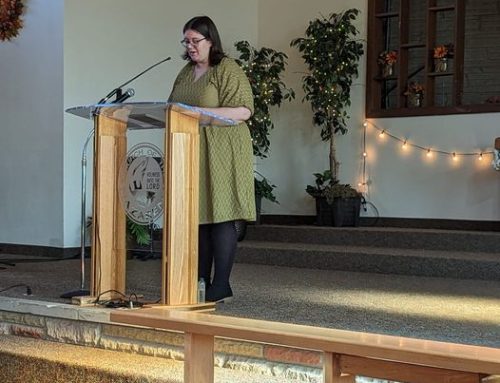Before starting this study, take a moment to read Mark 2:18-22. Although I’ll primarily be using the NIV version for the preparation of this study, you can read from whichever version you prefer.
In today’s passage, people once again question the practices of Jesus and his disciples. The previous section found Jesus eating with tax collectors and sinners, seemingly violating the purity laws that bound the religious elite. Then in today’s passage, people challenge him because he and his disciples weren’t fasting.
Fasting was and is a common religious practice. In Mark 2:18-22, both John the Baptist’s disciples and the Pharisees were fasting. Instead of fasting, Jesus and his disciples were eating with tax collectors and sinners, seemingly unconcerned with the ascetic practices that the other two groups held dear.
Most of the stories in Mark 2 have the same theme: Jesus challenges the status quo of the religious elite. He’s not the Messiah who comes to do the will of the people, but a Savior who comes to deliver the oppressed (even when that oppression comes from religious leaders).
Why Wasn’t Jesus Fasting?
When questioned, Jesus tells the people that he and his disciples aren’t fasting because it isn’t the right time. He says that people don’t fast when the bridegroom is with them. Instead, they eat and celebrate and enjoy the blessings of that moment.
However, he also points out that there will be a time when his followers fast. When the bridegroom (Jesus) leaves, they will fast because it is appropriate.
Jesus isn’t doing away with fasting altogether, but reminding the religious elite that fasting has its time and place. It isn’t a tool for them to use to try to be “more spiritual” than those around them.
Jesus’s response to this inquiry takes some of the “fun” out of their religious performance. Many of the religious elite fasted to be seen. We know from other Gospel accounts that Jesus speaks out against making a show out of fasting, as they did. Here, he reminds them that fasting needs to be done for God and God alone. Because of that, now just isn’t the time for his disciples.
Jesus is Doing a New Thing
Jesus elaborates by giving two examples. In the first, he says it is like putting a patch of unshrunk cloth on an old garment. When the garment is washed, the cloth shrinks and makes the tear worse than it was before.
In the second example, Jesus says it is like putting new wine in old wineskins. Because the old wineskins cannot handle the new wine, they burst.
Both of these illustrations are Jesus’s way of telling them that the Kingdom he’s inaugurating cannot be forced into the old religious institutions and practices. Sure, many practices will carry over and remain the same. But forcing the new work of God into an old way of thinking can’t work.
The work of Jesus is not compatible with the broken system of the Pharisees and the religious elite of that day. If they tried, the whole thing would be worse than it was before. For the new work of God to happen, sometimes the old needs to be left behind.
Application
Today’s passage shows a dispute between Jesus and the people of his day, but that doesn’t mean there isn’t an application for us today.
Fasting
This passage gives us an important reminder about fasting: it has its time and place. While we can fast as a church or individuals, fasting isn’t supposed to be a show of who can be the most religious.
Although I think the intentions are good, I’ve always been uncomfortable with youth group fasting events that aren’t tied to specific, significant prayer needs. They seem more like a way for teens to show off how good they are at being Christians.
Recently, many believers in my area had a day of fasting and prayer for a young lady who was in a car crash. These are the types of fasts that please God.
New Things
The other reminder for us today has to do with how we approach new movements of God’s Spirit. Like an unshrunk patch on old clothes, the new work God is doing may not be compatible with the established religious institutions (even today).
When we try to shoehorn the new thing God is trying to do into an old way of doing things, sometimes the result is an utter failure. For example, missionaries to other cultures often have worship gatherings that look very different than ours do because ours are so shaped by our own culture. If they tried to replicate our church services in those cultures, they probably wouldn’t get very far.
Saying “goodbye” to old ways of doing things can be hard. The things previous generations have done may have worked. They could have started out as sincere, wonderful things. But when religious practices become “just what we’ve always done” instead of “what God is asking us to do today,” we risk becoming just like the Pharisees.
What new thing does God want to do in your life? Is Jesus leading you to leave behind an old way of doing things in favor of a new work of God’s Spirit? Do it. It can be scary, but fortunately, we serve a God who goes with us into the unknown.




Leave A Comment